Helen DeElda Gunderson is a fourth-generation farmland owner who began managing over 500 acres of inherited land in 1997, embarking on a deep and intentional learning process enriched by the breadth of her work and life experiences. It’s impossible to weave here all the strands that together tell the story of Helen’s land stewardship journey. Indeed, you should hear directly from Helen on this: she has written and published an extraordinary two-volume anthology of place – a regional, neighborhood and family history of rural Iowa farm life that delves back as far as the stories of 19th century white settlers to the area and closes with real-time reflections on the COVID-19 pandemic and police murder of George Floyd in Minneapolis.
The anthology also serves to tell Helen’s own story, including reflections on identity, spiritual insights, and her evolving land ethic as she continues leading a transition to more sustainable farming practices in partnership with tenant farmers. You can find The Road I Grew Up On here.
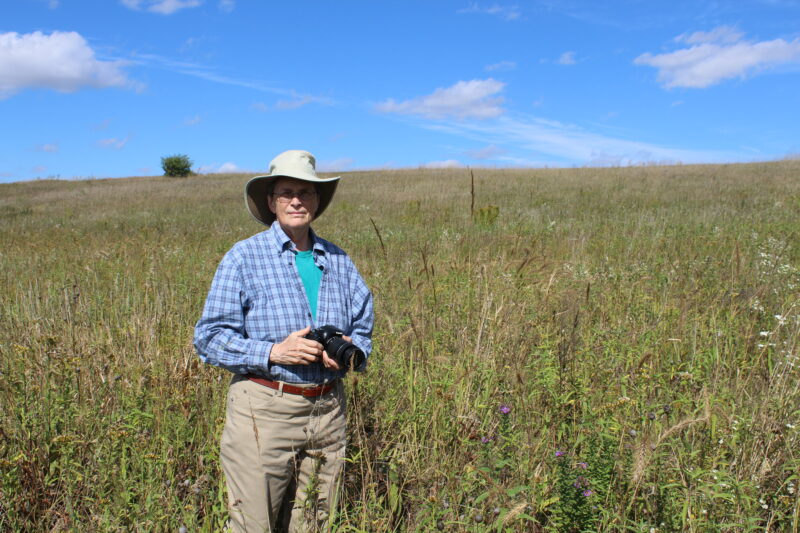
We asked Helen to share more about how she’s bringing together her vision for shifting farming practices on her land with extending land access to beginning farmers.
“I was so dependent on my farming income that I was fearful of doing something different than conventional farming,” Helen reflected in a recent conversation. But as she continued to learn about sustainable farming through Practical Farmers of Iowa conferences and farmer relationships, she realized that there was “an option for making a jump-shift.”
In early 2009 Helen began transitioning her land to organic production and started working with a fifth-generation young farmer from a neighboring family who had been learning to farm alongside her father using organic methods. “It was fortuitous – it was just an awesome relief and a huge step forward,” Helen says. She rented a 180-acre parcel of her land to the young farmer for a decade and was able to keep the terms favorable for the farmer in part by putting about half of the acres into the federal Conservation Reserve Program (CRP) and using the higher rent from the conservation land to rent the cropped acres at a lower rate while the farmer developed her business.
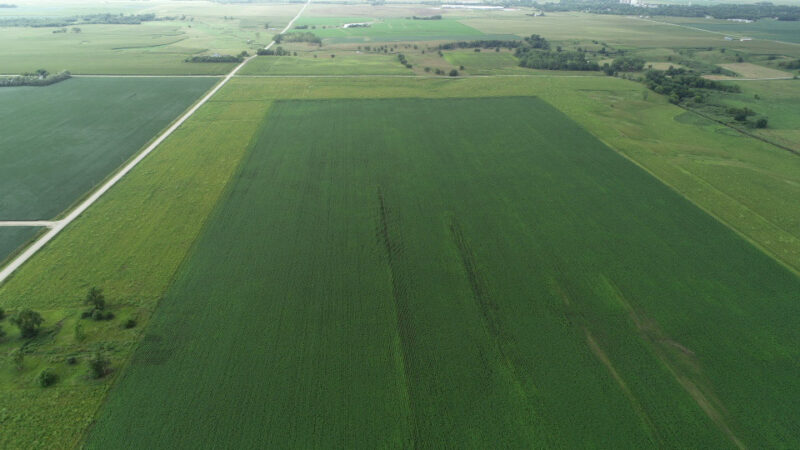
“People are critical of CRP,” Helen says, “because it takes farmland out of production – but we don’t need every acre in Pocahontas County to be in row crops. Our CRP produced a beautiful and environmentally healthy pollinator habitat of a significant size and also meant that by the time we averaged the CRP rent and the low rent that I was charging [the farmer], we were at the county average per acre.”
It was a decade of learning for both Helen and the farmer and not without serious challenges – weed pressure, extreme weather events, organic fertilizer supply chain issues, and GMO contamination. With concern for the renter’s financial viability on that land and after much discernment, input-gathering, and having articulated a set of long-term land stewardship goals, Helen decided to terminate the lease with the farmer, who had continued working a full-time job as a county health nurse while farming Helen’s land and returned to farming part of her own family’s land.
In 2019, through a series of connections, Helen met Abram Frank (age 26 at the time), with whom she “hit it off right away.” Abram was already farming organically, knew its challenges, and was committed to learning new ways to make organic agriculture work. He also had a vision for regeneratively farming the land, including adding more diversity to the operation over time. Helen valued Abram’s extended family connections to organic farming and the attendant support and resources, and she appreciated that Abram was also casting his own vision for long-term sustainability. The two are continuing to work well together, and Abram’s operation is growing.
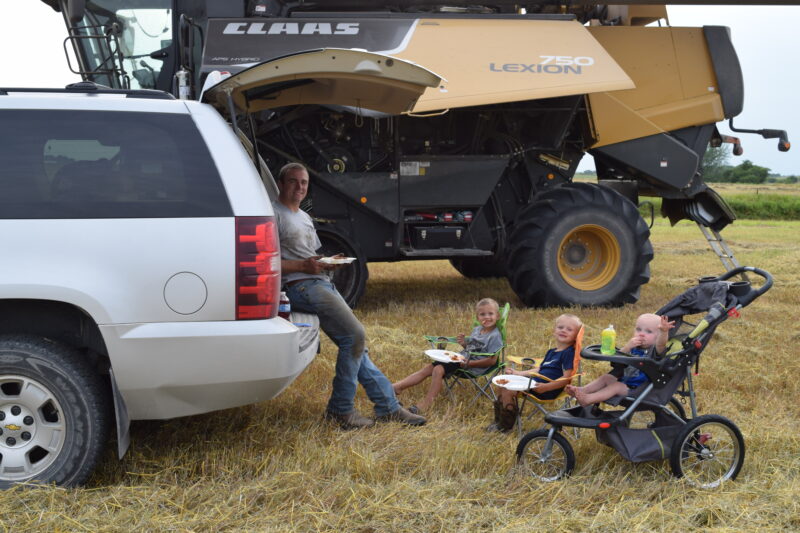
One of Helen’s goals has been to donate or sell outlying parcels of land to which she has had little emotional attachment or heritage, such that there are ultimately just two major tracts of land growing into regenerative “model farms,” as Helen puts it. She recently gave 80 acres to the Iowa State University Foundation, whose established protocol is to sell the land to its existing farmer, in this case a longstanding tenant. Helen is renting her remaining cropland to Abram.
A decade ago, Helen gave the Iowa Natural Heritage Foundation a portion of her farm that now has the pollinator habitat; the remainder of that farm will go to the INHF upon her death. The other farm will go to Practical Farmers of Iowa. Helen’s intent for both properties is that the INHF and PFI will work with Abram and/or other similarly minded farmers to continue operating the land in viable and healthy ways.
Abram has been growing alfalfa, oats, rye, soybeans, black beans, and corn and has a cattle herd that he eventually wants to graze on some of Helen’s land – as Helen says, “His vision and capacity are much bigger than what even I could have dreamed possible on my land.” Helen describes her relationship with Abram as an “intergenerational friendship and partnership.” It is also a business relationship, but one in which they “care much about each other and share visions about agriculture and using the land to grow food and to build healthy soils.”
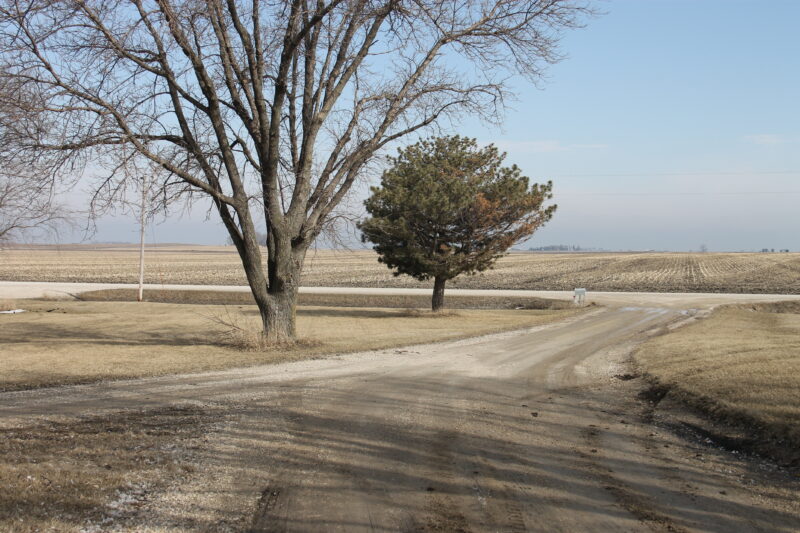
“When Abram and I drive around in the pickup and look at the farm, I tell him he’s my best bet for carrying on my legacy. I don’t have children. I have nieces and nephews, but none of them share my understanding of the issues, aptitudes, or capacities to carry my passion forward. Siblings aren’t going to carry it forward. A local bank isn’t going to be a conscientious custodian of the land. So Abram can do this – and I can pass along some of my privilege – and toward that end, when I sell him a 63-acre field this summer, the price he pays will be based on what would have been a fair value prior to the land grab that started in 2021. Perhaps the most important benefit is that Abram can help protect my land from being overtaken by the steamrolling march of large-scale, chemical, GMO agriculture and land-grabbing out-of-state billionaires and instead, provide a remarkable alternative model of what agriculture can be.
“Kahlil Gibran in The Prophet talks about parents and says that our children are like arrows that we shoot into the air. We do not know where they land, but the ‘archer’ (i.e. the creator) values not only the arrows but the bow that sent the arrows into the air. I believe this metaphor of letting go also applies to my efforts in publishing a book or producing videos as well as my efforts to be a good land steward. I won’t be around to fully see what Abram does with my land, but this is part of trusting – we really don’t know what effect our efforts are going to have. And the really cool thing is, I have a great satisfaction in seeing Abram beginning to implement our dreams now while I’m alive.
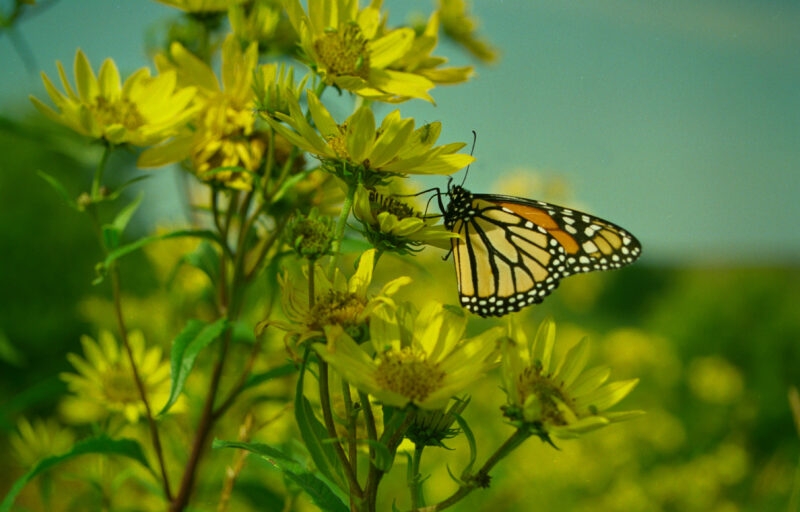
“I visited a monastery in New Mexico that specializes in weaving huge rugs, and the monk told us that when they are working on a project, they never see the front of it. It’s not until they take it off the loom that they really see what the pattern is. In reviewing my journal entries from the late 1980s I realize that even then I was thinking about doing more with my land instead of just receiving a check and an annual report. It’s just that I had no clue how to proceed. You take a little bit of an idea or notion and then as you work with people in your life – a spiritual director or a therapist or good friends – and you start enlarging upon that. It took 25 years for these things to evolve.
“Having grown up in an environment with all the restrictions for women and all the privileges given to men – and yet to be in a position today where I can make decisions and make them contrary to what my family would have done – I want people to understand this heritage and to know we took the fork in the road and blended who I am with Abram’s vision and skills. Who knows what the future of organic farming in Iowa will be – but maybe people will look back and recognize the origins of what will have become model farms.”
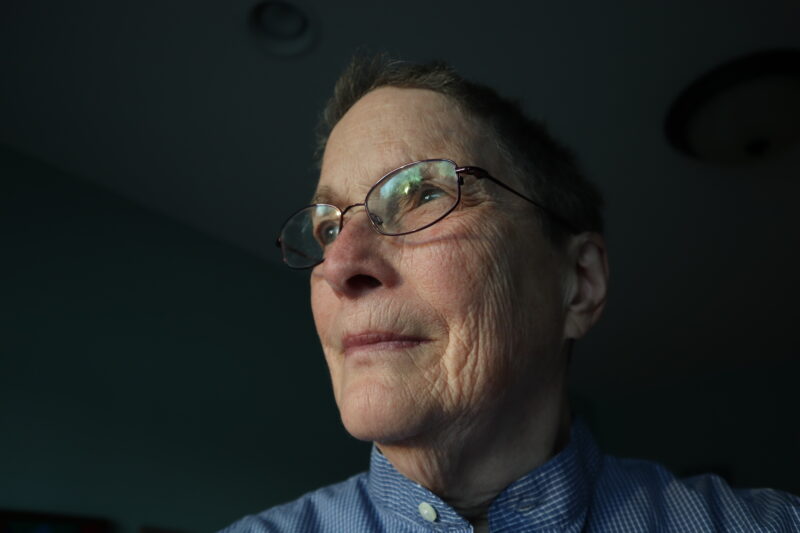
Climate Land Leaders is deeply grateful to Helen for sharing this story. We encourage you to visit Helen’s website to learn more about her life and past and current work. Here’s a link to Kahlil Gibran’s poem On Children that Helen referenced in our conversation.